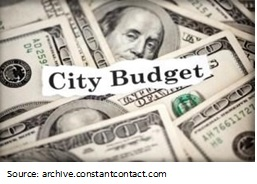When the DC City Council votes tomorrow on next year’s budget, any extra money should be used to fund services important to DC residents, such as housing, homeless services and health care. Although the budget proposed by Mayor Bowser contained significant new investments in many of these areas, and changes were made during DC Council “mark-ups” last week, substantial gaps still remain.
DC residents understand that investing in things like schools and housing are important to improving the quality of life in the District and giving all residents the chance to thrive. In a recent poll, some 62 percent of DC residents responded that they would favor increasing services rather than rolling back the modest sales tax increase proposed in the budget.
Important areas where spending could be increased include:

- $1.8 million for Permanent Support Housing. PSH combines long-term affordable housing and case management for residents who have been homeless a long time and have a significant disabling condition. This funding would serve 115 individuals and would meet the targets laid out in new Interagency Council on Homelessness (ICH) Strategic Plan to End Homelessness.
- $1.7 million for Targeted Affordable Housing for formerly homeless residents. This new initiative helps residents after their short-term Rapid Re-Housing ends, and PSH residents who no longer need intensive services but still need help paying rent. The additional funding would house 138 individuals, meeting the targets laid out in the ICH Strategic Plan.
- $5 million in Rental Assistance through the Local Rent Supplement Program. LRPS helps working poor and households on low fixed incomes pay rent in private market housing. This funding would help keep more than 300 families from becoming homeless and chip away at DC’s affordable housing crisis.
- $2.4 million to Restore Cuts to the DC Office on Aging. This would feed 390 seniors, provide 2,000 additional free rides to medical appointments, and keep wellness center programming intact.
- $2 million to restore funding for tobacco cessation and control. This would include investments in tobacco quit-lines and outreach campaigns for Medicaid beneficiaries.
- $10 million to help immigrant families get health insurance through the Healthcare Alliance. Healthcare Alliance participants must recertify their eligibility every six months through an in-person interview. New data suggest that this requirement creates a barrier to getting services. Switching to an annual recertification period would improve access to health services and reduce uncompensated care.
- $700,000 to Expand Kids Ride Free through age 24 for disconnected youth. Older youth (ages 22-24) who seek educational opportunities lack access to free bus and rail transportation offered to their younger classmates. Three-fourths of youth coming through the DC Re-Engagement Center identify transportation cost as a primary barrier to their sustained reengagement.
The District’s Dime will report back on the final budget later in the week.
To print a copy of today’s blog, click here.
